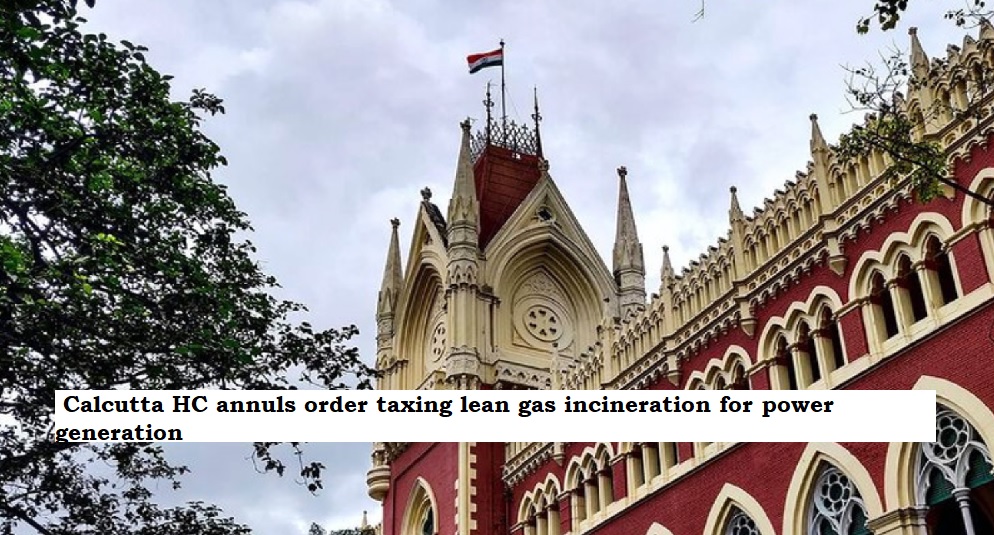


The Calcutta High Court has invalidated an ex parte order that imposed excise duty on the incineration of lean gas utilized in electricity generation. Justice Md. Nizamuddin's bench has directed the matter back to the relevant adjudicating authority, instructing a fresh adjudication order while allowing the petitioner to object and treating it as a show cause notice. The key concern centered on whether waste gas containing carbon monoxide, a non-marketable, unstable byproduct from carbon black manufacturing, subjected to incineration to comply with pollution laws, and used in electricity generation, should be excisable.
The petitioner, a "Carbon Black" manufacturer since March 27, 2009, faced the challenge of waste gas by-products during production. To adhere to environmental norms, the petitioner incinerated the gas to prevent toxic emissions, generating heat used for both captive consumption and sale of electricity. An Excise Audit Team issued a spot memo, asserting the marketability of the gas as fuel for industrial reciprocative engines, leading to its classification as an excisable product.
The petitioner argued that the waste gas, a byproduct of carbon black manufacturing, lacked marketability, storability, and transportability, rendering it valueless with no alternative use. Despite this, a show cause notice under Section 11A of the Central Excise Act, 1944, was issued, contending marketability due to the gas's use in electricity generation, subject to a Nil rate of duty for non-excisable and/or exempted goods.
The writ petition challenged the validity of the show cause notice, but the adjudication proceeded during its pendency, prompting the petitioner's objections. The department's stance was based on levying excise duty on gas, emphasizing its use in electricity production for captive consumption and grid sale, even though electricity itself attracted a nil rate of duty.
The petitioner contended that the department's approach, attempting to levy duty on a product not intended for manufacture and inherently non-marketable due to high CO content, was flawed. The department argued the show cause notice's proper issuance under authority, compliance with jurisdiction and natural justice principles, and the binding nature of the order-in-original, rendering the writ petition non-maintainable.
Ultimately, the court set aside the ex parte adjudication order, mandating a fresh adjudication order from the concerned authority. The ruling highlighted the flawed approach of levying duty on a non-marketable product, emphasizing the petitioner's intention and the inherent non-marketability due to the nature of the waste gas. The decision underscored the importance of proper procedural adherence and fair adjudication in excise matters, protecting the petitioner's rights and ensuring a lawful resolution of the dispute.
TAGS: Calcutta High Court ex parte order excise duty lean gas electricity generation Justice Md. Nizamuddin adjudicating authority